A Short Ride From London
I've received many recommendations to visit the Kigali Memorial. But I was sure that it wouldn't be for me.
But again, even local people here say I should go. It's in nice grounds they say, which sounded worth visiting without going into the museum.
So today, not only did I discover that there's internet here at the Solace Guest House, I also went to the Memorial for the Rwandan Genocide.
It was still my intention not to go in the museum - I'd already heard what's in there - I'd just go around the grounds and gardens.
Once there, like elsewhere in Africa there are few signposts telling you where things are, so I went down some steps between hedgerows away from the museum building, where other visitors were coming up. This led to a series of terraces (everything in Kigale is on hillside terraces) where all the graves were laid out. Huge tombs set in lawns with large grey concrete slabs on top. And fresh flowers everywhere. Further along were various small memorial gardens.
I'd also intended not to take any photos here, only of the city hills beyond. I'd heard there are good views of Kigali from here.
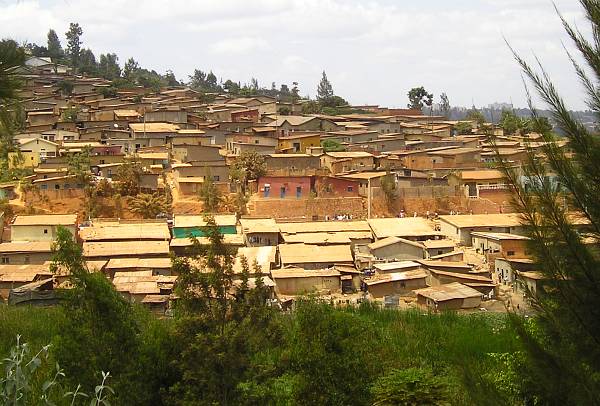
Kigali suburb.
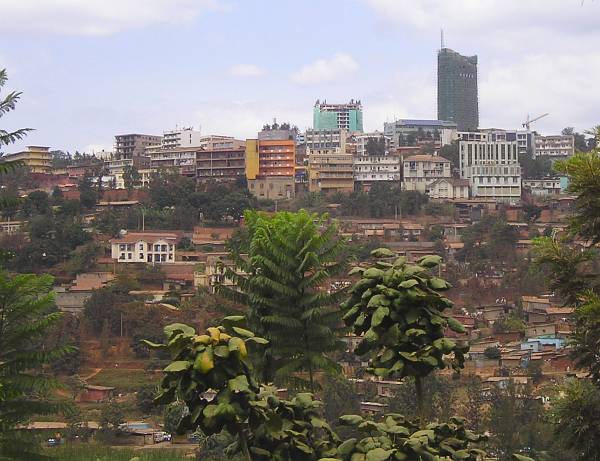
City hilltop.
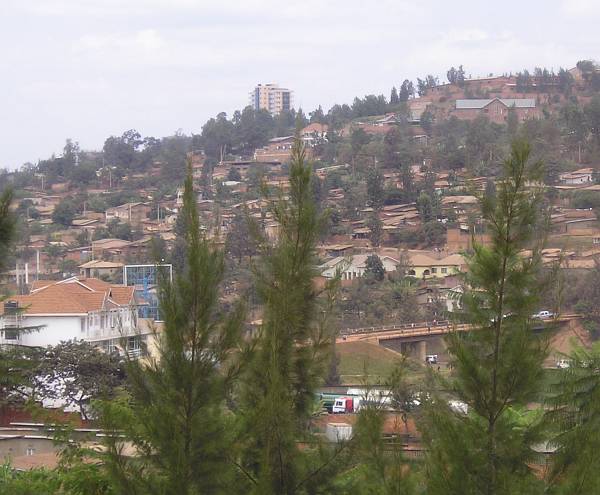
But lots of visitors to this memorial have cameras, so here's a centrepiece of one small garden.

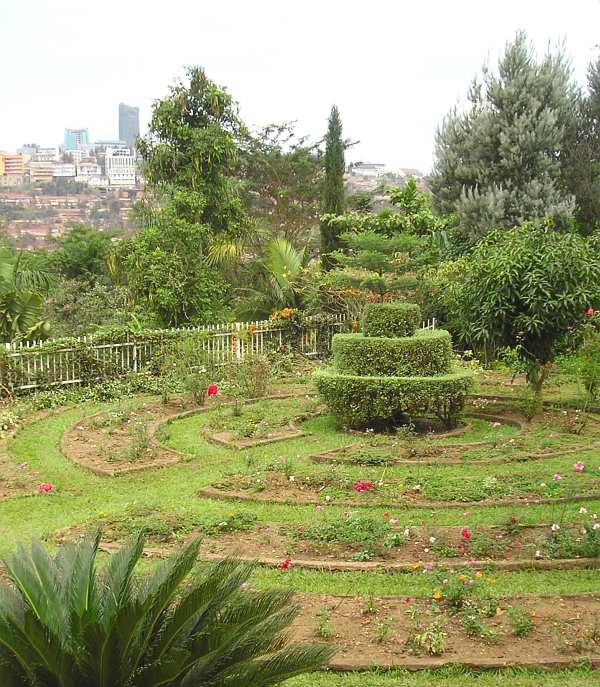
And a city hilltop beyond another.
The only other thing I wanted was the café. That was signposted but the door I entered took me into a part of the museum full of photographs of children, one of the exhibits I'd heard about. So I left quickly, the ambience in there was not for me.
In the past I'd visited many Nazi death camps, but this is different. The Holocaust happened a long time ago, or at least before I was born. This genocide took place while I was living an ordinary life, commuting to work every day, reading the news. And it happened not far away from me. You can ride here on a little motorbike.
Also, those WWII concentration camps were almost empty of visitors, and no one was there (I'm sure) who lived through it. At Sobibor I was the only visitor for two days, the curator (the only other person there) and I would sit together on the little bench outside the tiny museum for a while each day, in silent contemplation, having used up all our sign language and few English words.
Here, the memorial is full of visitors. And all those above school-leaving age will have lived through this genocide and will have been directly affected by it. Except us few with white faces.
Just a short ride from London.
That makes quite a difference, and makes this a living, and dying, museum in every sense of the word.
So I avoided the museum, found the coffee terrace, and watched life go by in this memorial of events so recent, deciding that to try to make any sense of it is an impossible task.
After a while I departed through the gardens, and saw this fellow, maybe also trying to make sense of it.
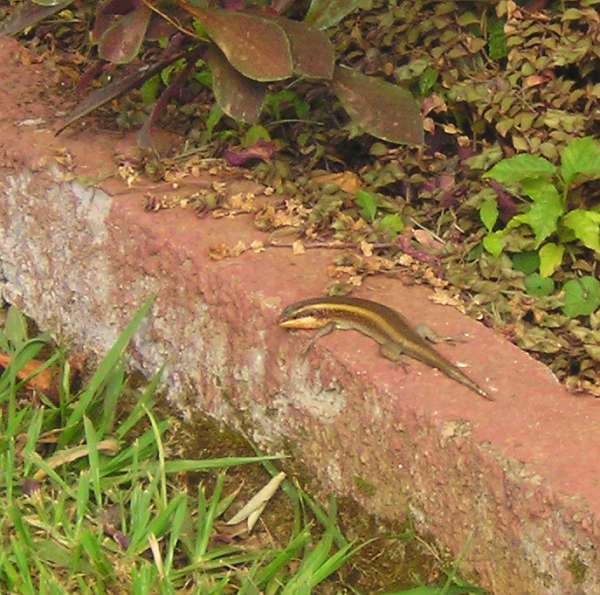
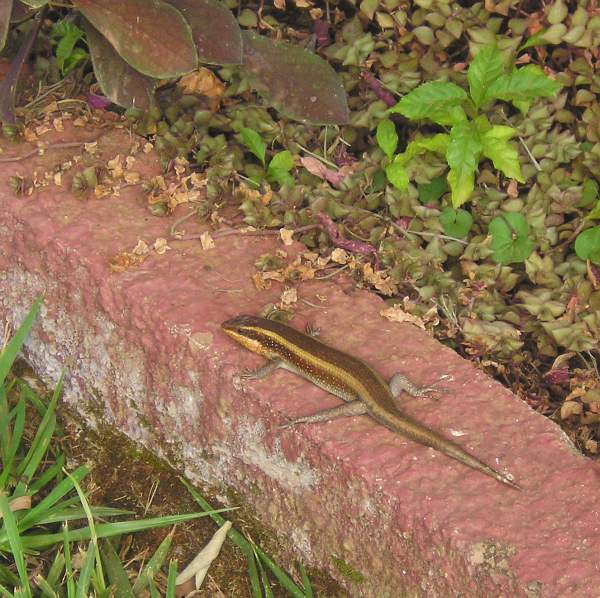
It looks like I'll be here until Sunday at least. I told the receptionist I'll be staying here today, and maybe tomorrow, but then I learnt that she's told the kitchen I'll be here for Saturday evening's meal. I can see I'll be here until Monday.
Since leaving Nairobi I've been a bit unsettled about how long to stay in places. After a few days I feel if I don't get going again I'll get stuck in the place forever. A bit of paranoia maybe. Someone told me recently that a side-effect of Larium (for malaria) can be paranoia.
But no, it's definitely true. If you stay too long in one place on a journey like this there's a real risk of becoming stuck there.
And I have the proof.
We stayed nearly a month in Khartoum.
And where are Caroline and Beau living now?? Three guesses.
That's right - Khartoum.
Caroline's been teaching English the last three weeks, Beau starts teaching music at the University music department in August.
So the very best of luck to them for the future.
